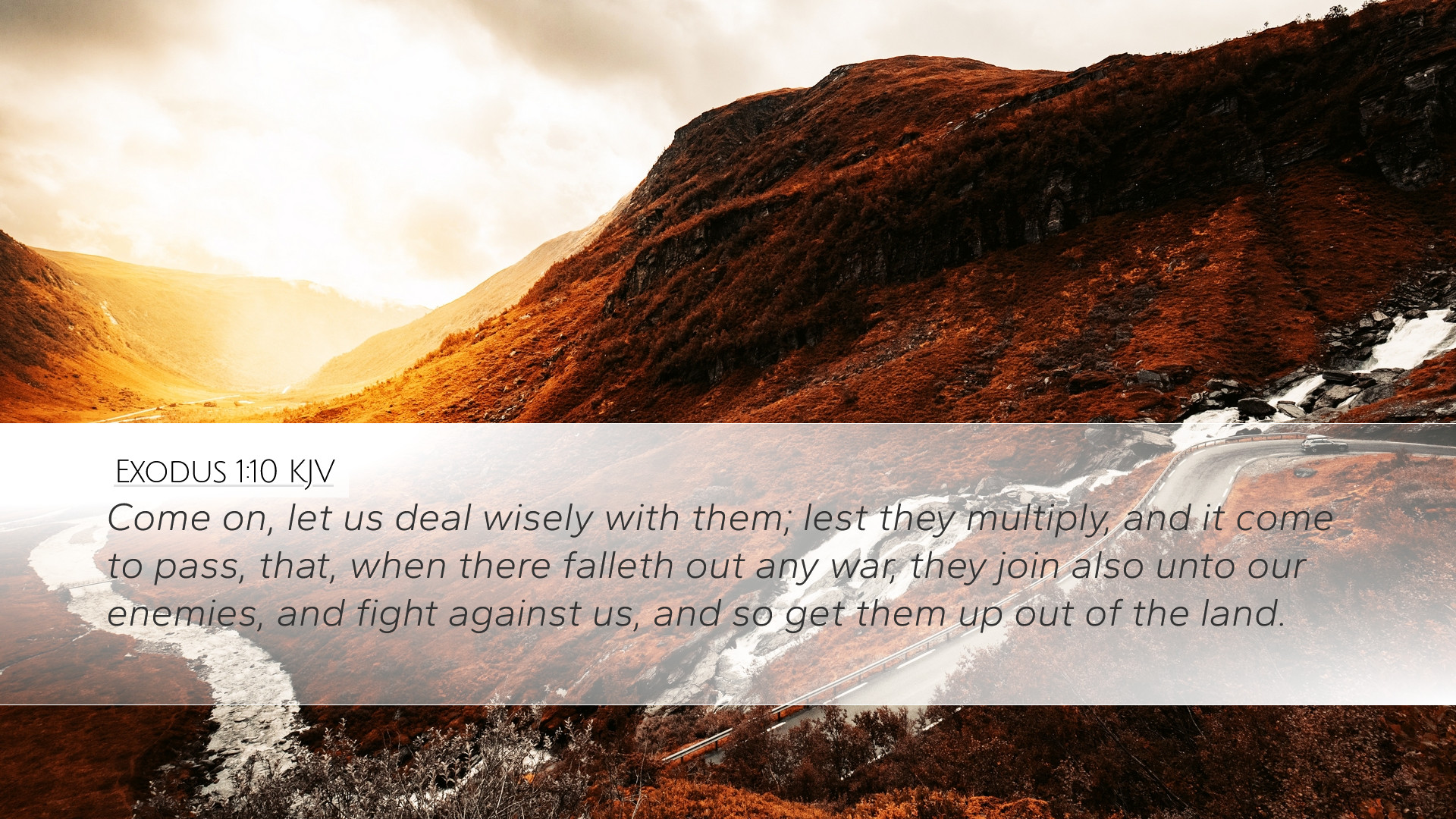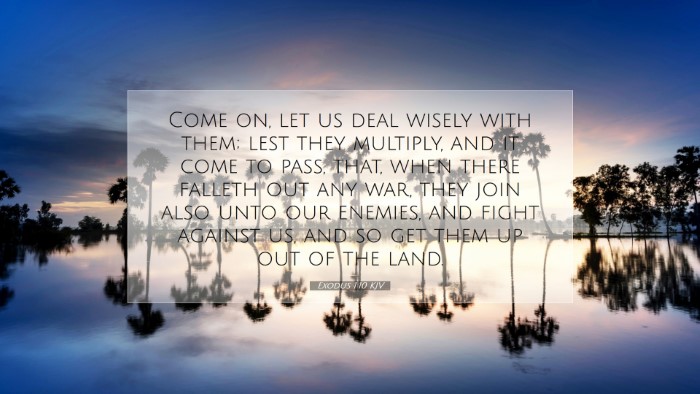Commentary on Exodus 1:10
Exodus 1:10 (KJV): "Come on, let us deal wisely with them; lest they multiply, and it come to pass, that, when there falleth out any war, they join also unto our enemies, and fight against us, and so get them up out of the land."
Introduction
The context of Exodus 1:10 reveals a pivotal moment in the history of Israel as they were becoming a formidable people in the land of Egypt. This commentary draws upon the insights from prominent public domain commentaries, weaving their collective wisdom together for a deeper understanding of this passage. In this verse, the fear of the Egyptians regarding the growing population of the Israelites leads to significant political and social ramifications.
The Historical Background
Exodus narrates the story of the Israelites' bondage in Egypt and their subsequent liberation. By the time of this verse, the Israelites were multiplying significantly, which prompted concern among the Egyptian rulers. According to Matthew Henry, this growth was not just demographic but also a testament to God's promises to Abraham concerning his descendants. Fear often leads to drastic measures, a theme that emerges in the text.
The Egyptians' Fear
The phrase "deal wisely with them" indicates an approach grounded in both strategy and cunning. Albert Barnes elaborates on this by suggesting that the Egyptians were not simply reacting out of paranoia; rather, they saw a tangible threat to their national security. The Israelites' potential alliance with enemy nations compounded this threat. This fear necessitated a response, which, as we see in the following verses, escalated into oppression.
Spiritual and Theological Insights
This verse can also be interpreted from a theological perspective. Adam Clarke observes that the Egyptians' mistrust was misguided. God had chosen Israel for a purpose. Their growth was a manifestation of divine intervention, and any attempt to suppress them was ultimately futile. God's plans cannot be thwarted by human actions, even when those actions arise from fear and misunderstanding.
Wisdom and Cunning in Leadership
The "wisdom" that the Egyptians sought is an interesting duality. On one hand, it reflects prudent governance; on the other, it suggests manipulation and deception. Matthew Henry notes that worldly wisdom often employs underhanded tactics, serving more to harm than to assist. Leaders in any context must discern the difference between using wisdom for protection and succumbing to fear-driven malice.
The Role of War in This Context
The mention of war raises significant issues of morality and ethics in leadership. Albert Barnes points out that the Egyptians feared that should a conflict arise, the Israelites might side with their enemies. This fear was not unwarranted but reflects a broader theme in Scripture: human conflict and the propensity for betrayal when survival is at stake. This serves as a reminder to leaders today about the fragile nature of allegiance and trust.
Application for Today’s Leaders and Ministers
For pastors and leaders, the implications of Exodus 1:10 are profound. Not only must there be wisdom in leadership, but there must also be a reliance on faith rather than fear. When faced with challenges—be they congregational growth or societal change—leaders should remember that God’s hand is upon those who are faithful. Using fear as a motivator can lead to actions that do not align with God’s justice and love.
Conclusion
Exodus 1:10 serves as a poignant reminder of the complexities surrounding leadership, fear, and divine purpose. The themes presented in this verse challenge us to reflect on our responses to growth and change, encouraging a posture of faith in God’s promises rather than a reaction of fear. In understanding the plight of the Israelites and the motivations of the Egyptians, we glean vital lessons for ministry and leadership today.


